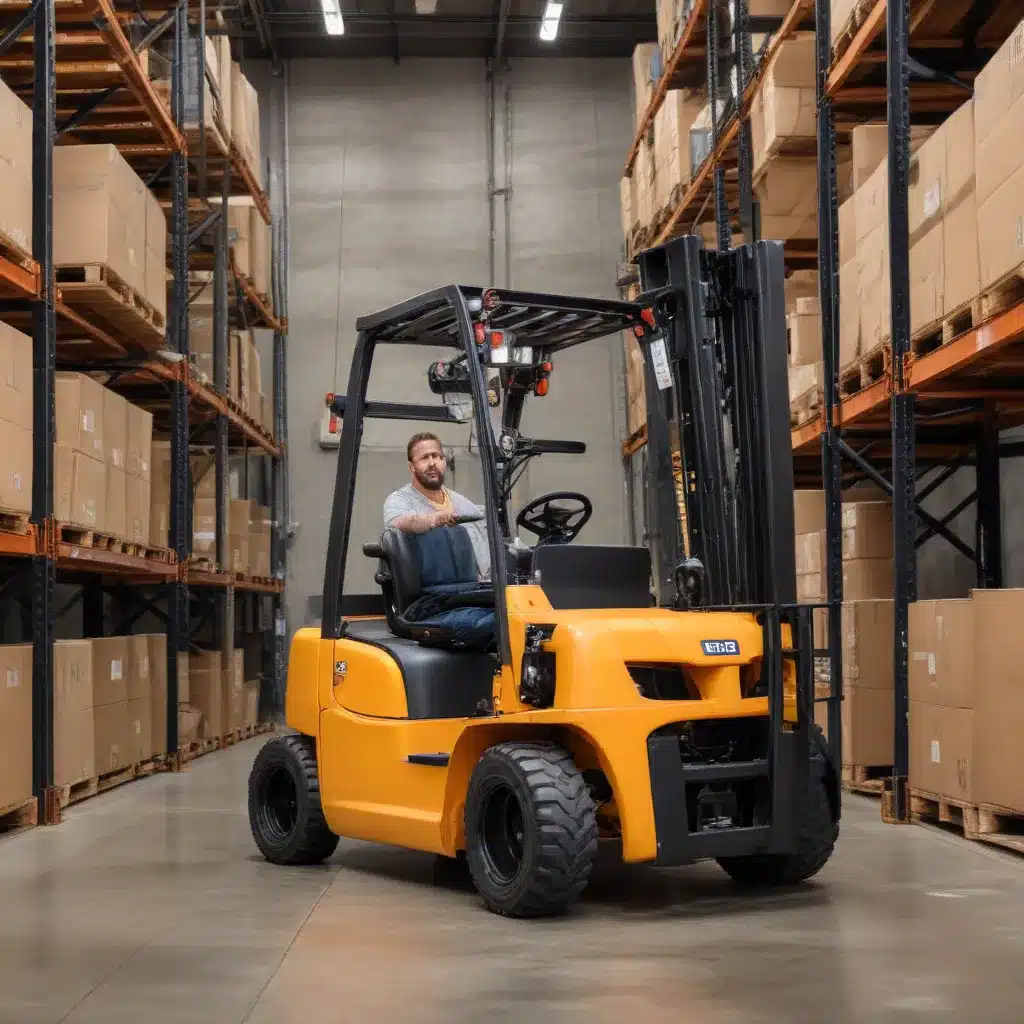
The Importance of Comprehensive Forklift Operator Training
In today’s fast-paced industrial landscape, safety is not just a luxury – it’s a necessity. Forklift accidents can have catastrophic consequences, from damage to goods and property to the most crucial threat – harm to human lives. To mitigate these risks and foster a safer, more efficient work environment, comprehensive forklift operator training programs have become an absolute imperative for businesses.
These meticulously designed training programs, such as those offered by Fleet Safety International, equip your workforce with the knowledge, skills, and attitudes required to operate forklifts safely and effectively. By blending theoretical instruction with hands-on experience, these programs contribute significantly to creating a more conscious and secure working environment.
In the face of rising workplace accidents involving forklifts, forklift operator training is no longer just a good-to-have – it’s an essential investment. When companies prioritize comprehensive training for both operators and supervisors, they not only safeguard their employees and assets but also mitigate the risk of costly accidents and potential lawsuits.
Fostering a Culture of Forklift Safety
Establishing a strong safety culture is paramount in maintaining a safe and efficient work environment. This starts with thorough forklift training for both operators and supervisors, ensuring they understand the importance of consistent safety practices and the potential risks associated with forklift operations.
Operator Training: Equipping for Success
Forklift operator training should cover a wide range of topics, including:
- Safe operating techniques, such as maneuvering, lifting, and stacking
- Adherence to safety protocols, including the use of seatbelts, horn, and designated work areas
- Proper maintenance and pre-operational inspections
- Familiarity with relevant safety regulations and industry best practices
By conducting regular training sessions and refresher courses, companies can reinforce safe practices and address any new updates or regulations, ensuring their operators remain up-to-date and vigilant.
Supervisor Training: Reinforcing Safe Habits
Supervisors play a crucial role in fostering a culture of forklift safety. The DP LeadSafe Train-the-Supervisor program offered by Crown, for example, equips supervisors with the skills and knowledge to effectively oversee forklift operations and reinforce safe operating habits among their teams.
Supervisors trained in this program will learn to:
- Monitor and provide feedback on operator performance
- Identify and address potential safety hazards
- Communicate and enforce safety protocols
- Implement corrective measures to prevent accidents
By empowering supervisors to take an active role in promoting forklift safety, companies can create a collaborative environment where everyone is invested in maintaining a safe and productive workplace.
Leveraging Technology for Forklift Safety
Advancements in technology have revolutionized the material handling industry, offering a range of tools and systems that can significantly enhance forklift safety and efficiency.
Forklift Monitoring and Telemetry Systems
Forklift monitoring systems, such as those provided by HCO Innovations, utilize sensors, cameras, and GPS technologies to track the real-time movement, location, and performance of forklifts. This data-driven approach enables operators and managers to identify and address potential safety hazards, such as speeding, abrupt stops, or unauthorized access.
Collision Avoidance Systems
Newer forklift models are equipped with collision avoidance systems that use sensors and automatic braking technologies to detect obstacles and prevent collisions. These systems provide timely alerts to operators, giving them the necessary reaction time to avoid accidents and protect both personnel and equipment.
Training Simulators
Forklift training simulators offer a safe, controlled environment where operators can practice their skills and experience challenging scenarios without any actual risks. These immersive simulations help operators develop their handling techniques, improve decision-making, and reinforce the importance of following safety protocols.
Proximity Sensors and Remote Monitoring
Proximity sensors create a safety zone around forklifts, alerting operators when they approach objects or individuals, while remote monitoring and control systems enable centralized oversight of forklift operations. These technologies work together to enhance situational awareness, facilitate immediate response to emergencies, and improve overall efficiency.
By leveraging the latest technological advancements, distribution centers can create a safer and more productive work environment, minimizing the risk of accidents and ensuring the well-being of their workforce.
Optimizing Warehouse Operations for Safety and Efficiency
Warehouse optimization and forklift fleet management are crucial aspects of maintaining a safe and efficient distribution center. HCO Innovations, a leading management consulting firm in this field, offers comprehensive services to help distribution centers achieve significant cost reductions and operational improvements.
HCO Innovations’ experts work closely with clients to:
- Evaluate warehouse layouts and identify potential safety hazards
- Conduct thorough safety assessments and provide tailored recommendations
- Implement turnkey maintenance solutions to keep forklift fleets in optimal condition
- Leverage advanced cost-tracking software to optimize fleet management
By partnering with HCO Innovations, distribution centers can streamline their operations, enhance safety measures, and maximize the return on investment for their forklift fleet. Their “boots on the ground” approach, combined with the latest technological solutions, ensures that clients consistently achieve their goals of improved productivity and reduced material handling costs.
Conclusion: Elevating Forklift Safety and Productivity
Forklift safety is not an option – it’s a necessity. By investing in comprehensive operator training programs, leveraging the latest technology, and optimizing warehouse operations, distribution centers can create a safer, more efficient work environment that protects their employees, assets, and ultimately, their bottom line.
The journey towards a safer and more productive forklift fleet begins with a commitment to continuous improvement. Whether you’re looking to implement a new forklift training program, explore innovative safety technologies, or optimize your warehouse operations, Forklift Reviews is your trusted source for expert insights and practical guidance.
By following industry best practices and staying ahead of the curve, you can elevate your forklift fleet operations, foster a culture of safety, and unlock new levels of productivity – all while safeguarding your most valuable asset: your people.

